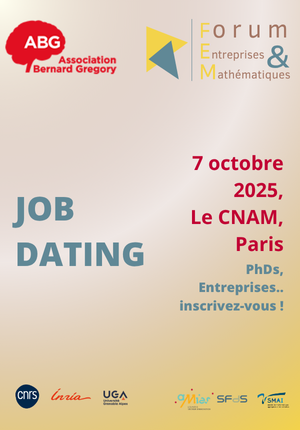Development of Innovative Processes for Beverages Microbial Stabilization
| ABG-132202 | Thesis topic | |
| 2025-05-26 | EU funding |
- Biotechnology
Topic description
SpoilControl will implement a novel strategy encompassing multiple beverages (wine, spirits, beer, cider, kombucha, kefir), disciplines (environmental and life sciences, engineering, economics), and solutions (sustainable biological, chemical, and physical treatments). Three different treatments will be evaluated & optimized: Pulsed light (PL), UVc and Cold Plasma, to treat surfaces and liquid beverages. 1. Test of UV-C, PL & cold plasma prototypes on a large-scale range of products & surfaces, and for various fungal & bacterial spoilers (>25 species) including biofilms. 2. Assessment of the technical feasibility of each process: operating parameters influencing the antimicrobial efficiency, optimization depending on the matrixes. 3. Impact of these processes on the organoleptic characteristics of the beverages & on chemical composition. 4. Evaluation of the balance between Capital and Operating Expenses (CAPEX and OPEX, respectively) associated with these innovative processes and beverages depreciation over time.
Starting date
Funding category
Funding further details
Presentation of host institution and host laboratory
L’ISVV fédère tous les laboratoires de recherche du site bordelais qui travaillent sur la vigne et le vin.
En cela, l’ISVV réunit autour de projets pluri et interdisciplinaires les acteurs d’Unités Mixtes de Recherche, gérées en co-tutelles avec les EPST INRAE, CNRS, ou encore Bordeaux Sciences Agro et Bordeaux INP. Toutes sont rattachées à un ou plusieurs départements de recherche de l’Université de Bordeaux, que ce soit dans le domaine des sciences de l’environnement (département SE) ou celui des sciences humaines et sociales (départements CHANGES, ECOr, DROIT et TRANSFORMATIONS SOCIALES). Des liens forts existent également avec les acteurs d’Unités de Recherche de l’Université Bordeaux Montaigne
Globalement, la recherche à l'ISVV se décline autour de trois grands thèmes fédérateurs et synergiques : environnement, typicité/qualité, marchés.
L’éventail des approches méthodologiques et des techniques utilisées par les chercheurs se situe à la pointe dans de nombreux domaines : agronomie, écophysiologie, microbiologie, chimie et biochimie, génie des procédés, analyse sensorielle, psychologie cognitive, cytologie, épidémiologie, écologie, biologie moléculaire, économie quantitative, études statistiques, etc.
Website :
PhD title
Country where you obtained your PhD
Institution awarding doctoral degree
Graduate school
Candidate's profile
The candidate for this PhD in microbiological processes holds a Master's degree (or equivalent) in biotechnology, microbiology, biochemistry, or process engineering. He/she must demonstrate a strong understanding of microbiological techniques, microorganism culture, and fermentation processes. Practical laboratory experience, especially in handling microbial strains and biochemical analysis, is highly desirable. The candidate should exhibit scientific rigor, autonomy, and strong analytical skills to conduct complex experiments. Good proficiency in computer tools and data processing software is a plus. The ability to work in a team, effectively communicate results, and adapt to a multidisciplinary environment is also essential. Motivation to contribute to innovation in the field of microbiological processes, particularly in industrial or environmental applications, will be highly valued.
Vous avez déjà un compte ?
Nouvel utilisateur ?
Get ABG’s monthly newsletters including news, job offers, grants & fellowships and a selection of relevant events…
Discover our members
 Généthon
Généthon  ONERA - The French Aerospace Lab
ONERA - The French Aerospace Lab  ADEME
ADEME  PhDOOC
PhDOOC  CESI
CESI  CASDEN
CASDEN  Ifremer
Ifremer  SUEZ
SUEZ  Groupe AFNOR - Association française de normalisation
Groupe AFNOR - Association française de normalisation  TotalEnergies
TotalEnergies  Laboratoire National de Métrologie et d'Essais - LNE
Laboratoire National de Métrologie et d'Essais - LNE  MabDesign
MabDesign  ASNR - Autorité de sûreté nucléaire et de radioprotection - Siège
ASNR - Autorité de sûreté nucléaire et de radioprotection - Siège  MabDesign
MabDesign  Institut Sup'biotech de Paris
Institut Sup'biotech de Paris  Nokia Bell Labs France
Nokia Bell Labs France  Tecknowmetrix
Tecknowmetrix  Aérocentre, Pôle d'excellence régional
Aérocentre, Pôle d'excellence régional  ANRT
ANRT


